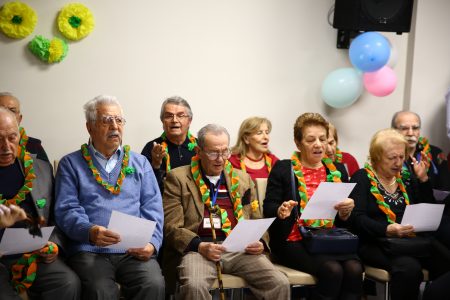Center for Alzheimer’s Disease and Social Center



In 2017, Kadıköy Municipality initiated an integrated service model through its newly established Center for Alzheimer’s Disease and Social Center in Kadıköy where 65+ comprises 19% of the total population. The aim of this center is to maintain the quality of life of the patients after the diagnosis, to establish an appropriate environment where patients feel safe and enable them to re-socialize, and to continue enjoying activities through mental stimulations which contribute the protection of brain functions.
Alzheimer’s disease is one of the most common types of dementia. Alzheimer’s patients may have difficulty in their daily functions and need special care. However, relatives of Alzheimer’s patients may have psychological and mental difficulties and need support due to being responsible for caring. This twofold need within the society encouraged Kadıköy Municipality to take action. Being unique and the first in Turkey, the Center combines the formerly mentioned needs in one complex, provides appropriate services for both patients and their relatives at the same time and under the same roof, and facilitates social integration and active ageing of patients, their relatives as well as the elderly:
Website: http://alzheimermerkezi.kadikoy.bel.tr/
Main target group: Older people in general
Other target group(s): Patients with Alzheimer's Disease
Sector(s): Health, Social protection
Desired outcome for older people:
Build and maintain relationships